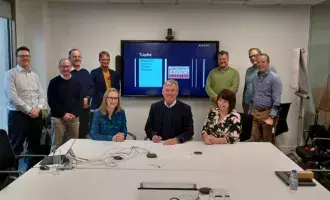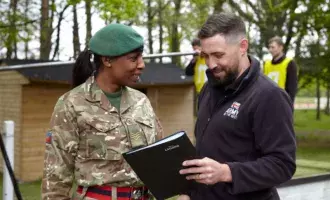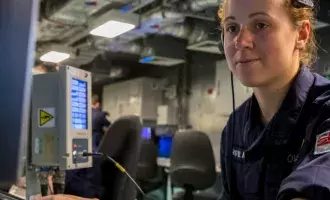“Members of the armed forces are recruited from civilian life and will return to it at the end of their service.”
– Defence in a competitive age
Capita Learning has had a hand-in-glove partnership with the Ministry of Defence for almost a decade. We read Defence Command Paper: “Defence in a competitive age” with interest and viewed the overarching strategy document from a learning and development lens. The standout sections for us covered the ‘workforce of the future’ and a commitment to equality and diversity.
This is timely as the most important workforce skills are going to be digital, cognitive, social and emotional, as well as adaptability and resilience skills.[1] These skills are set to become ever more important over the coming years.
The armed forces face many challenges over the next decade, some, like developing digital skills and creating cognitive ‘safe spaces’, will be important in developing an organisational culture that is adaptive and resilient to changes, both in society and the wider global threat environment which our people in unfirm must react to.
What role will L&D play as the armed forces prepare for the ‘workforce of the future’?
“As we modernise, we will seize opportunities to automate tasks, driving greater efficiency and effectiveness. By harnessing technology, exploiting data and analytics, and comprehensively transforming our corporate services, we will develop a leaner but more highly skilled and capable workforce.”
– Defence in a competitive age.
The headline is that remote working is now embedded in the workforce of the future. There’s no going back. The great acceleration in the use of technology, digitization, and new forms of working is going to be sustained. There is consensus that the pandemic sped-up the natural evolution of working practises through the uptake and development of worker friendly technologies by up to five to ten years. This in turn means that the learning culture and learning products keep pace with, and set the tone for, the working practices of the future.
Rapid development during the pandemic has made remote working commonplace. The gig economy is growing. And advances in artificial intelligence (AI) and robotics could further upend the conventional workplace.[2]
One of the key challenges, from a strategic perspective for the armed forces, is that most of their employees have more will than one career in their lifetimes. One inside the MoD and one in wider society. For workers of the future, the ability to adapt their skills to the changing needs of the workplace will be critical. ‘Lifelong learning’ must become the norm and learning and development strategy needs to sit at the core of creating the workplace of the future. Digitising learning and making is accessible for ‘digital native’ millennial generations is key.
Digital solutions are starting to offer equal or improved learning outcomes at reduced cost, as well as long-term ownership of content and the ability to adapt at the rate of change, much faster than traditional face-to-face courses or older iterations of digital learning offerings. At the same time, the power of big-data analytics enables the creation of new value propositions, not only for adaptive or personalized programming, but also for competency-based and customized delivery.
This is something the armed forces are going to have to get to grips with the remain relevant in this competitive age.
How is Capita Learning helping the Ministry of Defence future proof its workforce?
“We will be one of the most integrated, digital, and agile forces in the world, projecting our influence and promoting our capabilities on the world stage across land, air, maritime, cyberspace and space.”
– Defence in a competitive age
Capita Learning ran a full day workshop with fifty of the top leaders from one of the UK’s armed services, exploring the future of learning and learning technology in a post-pandemic world. The consultation workshop was so successful that it is being delivered to the remaining two services.
In recognition of the rapid digitisation of learning, Capita’s five learning businesses have been successfully united under one new brand called Capita Learning. This has allowed us to respond more quickly, more effectively, and with better value to the needs of our customers and put the learner at the centre of the solution.
Capita Learning is working closely across the whole of defence to assist in a digital skills learning offering, integrate all learning and development for the Royal Navy through Project Selborne, and ensure the armed forces are more agile, flexible and resilient to the challenges of the future.
Capita Learning has also been helping the armed forces digitise and modernise leadership courses, create content for flexible and remote learning opportunities, and provide bespoke and off the shelf learning for diversity and inclusivity learning, and inclusive leadership programmes.
If you are interested in finding out more about our managed learning services offering, our insights, or any of the programmes and solutions mentioned above, please contact the Defence and Security Learning Partner team at Capita Learning on defence.account@capita.com
Sources: [1] Optimism for a Brighter Future [2] Different leads to better.

Stewart McCallum
Learning Partner, Defence & Security
Stewart started his career as a consultant, before joining the armed forces. He Commissioned from RMA Sandhurst and spent almost a decade in Learning and Development in the British Army. He subsequently joined Barclays and PwC before becoming a client facing Learning Partner at Capita Learning focused on the defence sector. You can reach him via defence.account@capita.com
Thinking about your organisation?
References:
[1] Optimism for a Brighter Future
[2] Different leads to better







